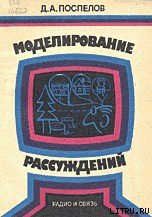Психология оценки и принятия решений - Плаус Скотт (читать книги онлайн бесплатно полностью без .txt) 📗
Einhorn, H. J., Hogarth, R. M. (1981). Behavioral decision theory: Processes of judgment and choice. Annual Review of Psychology, 32,53—88.
Einhorn, H. J., Hogarth, R. J. (1986). Backward and forward thinking in decision making. Selected Paper No. 62.Chicago: Graduate School of Business, University of Chicago.
Ellsberg, D. (1961). Risk, ambiguity, and the Savage axioms. Quarterly Journal of Economics, 75,643—669.
Esser, J. K., Lindoerfer, J. S. (1989). Groupthink and the space shuttle Challenger accident: Toward a quantitative case analysis. Journal of Behavioral Decision Making, 2,167—177.
Fama, E. F. (1965). Random walks in stock market prices. Financial Analysts Journal, 21,55-60.
330
Feldman, J. M. (1986). A note on the statistical correction of halo error. Journal of Applied Psychology, 71,173—176.
Feldman, R. S., Prohaska, T. (1979). The student as Pygmalion: Effect of student expectation on the teacher. Journal of Educational Psychology, 71485-493.
Feldman, R. S., Theiss, A. J. (1982). The Teacher and the student as Pygmalions: Joint effects of teacher and student expectations. Journal of Educational Psychology, 74,217—223.
Festinger, L. (1954). A theory of social comparison processes. Human Relations, 7,117-140.
Festinger, L. (1957). A theory of cognitive dissonance.Evanston, IL: Row, Peterson.
Festinger, L., Carlsmith, J. M. (1959). Cognitive consequences of forced compliance. Journal of Abnormal and Social Psychology, 58,203—210.
Feynman, R. P. (1988, February). An outsider's inside view of the Challenger inquiry. Physics Today,26—37.
Fiedler, K. (1988). The dependence of the conjunction fallacy on subtle linguistic factors. Psychological Research, 50,123—129.
Fischhoff, B. (1977). Perceived informativeness of facts. Journal of Experimental Psychology: Human Perception and Performance, 3,349—358.
Fischhoff, B. (1991). Value elicitation: Is there anything in there? American Psychologist, 46,835-847.
Fischhoff, В., Bar-Hillel, M. (1984). Diagnosticity and the base-rate effect. Memory Cognition, 12,402—410.
Fischhoff, В., Beyth, R. (1975). "I Knew it would happen": Remembered probabilities of once-future things. Organizational Behavior and Human Performance, 13,1—16.
Fischhoff, В., Beyth-Marom, R. (1983). Hipothesis evaluation from a Bayesian perspective. Psychological Review, 90,239—260.
Fischhoff, В., Lichtenstein, S., Slovic, P., Derby, S. L., Keeney, R. L. (1981). Acceptable risk.Cambridge, England: Cambridge University Press.
Fischhoff, В., Slovic, P. (1980). A little learning...: Confidence in multi-cue judgment tasks. In R. Nickerson (Ed.), Attention and performance, VIII.Hillsdale, NJ: Erlbaum.
Fischhoff, В., Slovic, P., Lichtenstein, S. (1977). Knowing with certainty: The appropriateness of extreme confidence. Journal of Experimental Psychology: Human Perception and Performance, 3,552—564.
Fishburn, P. С (1984). SSB utility theory and decision making under uncertainty. Mathematical Social Sciences, 8,253—285.
Fiske, S. Т., Taylor, S. E. (1991). Social cognition(2nd ed). New York: McGraw-Hill.
Fletcher, D. J. O., Ward, W. (1988). Attribution theory and processes: A cross-cultural perspective. In M. H. Bond (Ed.), The cross-cultural challenge to social psychology.Newbury Park, CA: Sage Publications.
331
Forsterling, F. (1989). Models of covariation and attribution: How do they relate to the analogy of analysis of variance? Journal of Personality and Social Psychology, 57,615—625.
Frenkel, O. J., Doob, A. N. (1976). Post-decision dissonance at the polling booth. Canadian Journal of Behavioral Science, 8,347—350.
Frieze, I. H., Bar-Tal, D., Carroll, J. S. (Eds.). New approaches to social problems.San Francisco: Jossey-Bass.
Galper, R. E. (1976). Turning observers into actors: Differential causal attributions as a function of "empathy". Journal of Research in Personality, 10,328-335.
Gansberg, M. (1964, March 27). 37 who saw murder didn't call the police. New York Times,pp. 1, 38.
Gill, S. (1947, March 14). How do you stand on sin? Tide,p. 72.
Gilovich, Т., Vallone, R., Tversky, A. (1985). The hot hand in basketball: On the misperception of random sequences. Journal of Personality and Social Psychology, 17,295-314.
Gliksman, A. (1986, February 13). Behind Moscow's fear of "Star Wars". New York Times,p. 27.
Gmelch, G. (1978, August). Baseball magic. Human Nature,pp. 32—39.
Goldberg, L. R. (1959). The effectiveness of clinicians'judgments: The diagnosis of organic brain damage from the Bender-Gestalt test. Journal of Consulting Psychology, 23,25—33.
Golding, S. L., Rorer, L. G. (1972). Illusory correlation and subjective judgment. Journal of Personality and Social Psychology, 80,249—260.
Graham, T. W., Kramer, В. М. (1986). The polls: ABM and Star Wars: Attitudes toward nuclear defense, 1945—1985. Public Opinion Quarterly, 50,125-134.
Greenberg, J., Williams, K. D., O'Brien, M. K. (1986). Considering the harshest verdict first: Biasing effects on mock juror verdicts. Personality and Social Psychology Bulletin, 12,41—50.
Gregory, W. L., Cialdini, R. В., Carpenter, К. В. (1982). Self-relevant scenarios as mediators of likelihood and compliance: Does imagining make it so? Journal of Personality and Social Psychology, 43,89—99.
Grether, D. M., Plott, C. R. (1979). Economic theory of choice and the preference reversal phenomenon. American Economic Review, 69,623—638.
Griffin, D. W., Dunning, D., Ross, L. (1990). The role of construal processes in overconfident predictions about the self and others. Journal of Personality and Social Psychology, 59,1128—1139.
Griggs, R. A., Cox, J. R. (1982). The elusive thematic-materials effect in Wason's selection task. British Journal of Psychology, 73,407—420.
Gross, E. J. (1964). The effect of question sequence on measures of buying interest. Journal of Advertising Research, 4,40—41.
Haberman, C. (1990, July 19). A child's nightmare in Italy is now the nation's shame. New York Times,pp. Al, All.
332
Hagafors, R., Brehmer, B. (1983). Does having to justify one's judgments change the nature of the judgment process? Organizational Behavior and Human Performance, 31,223—232.
Hake, H. W., Hyman, R. (1953). Perception of the statistical structure of a random series of binary symbols. Journal of Experimental Psychology, 45,64-74.
Hamilton, D. L., Rose, T. L. (1980). Illusory correlation and the maintenance of stereotypic beliefs. Journal of Personality and Social Psychology, 39,832-845.
Hardin, G. (1968). The tragedy of the commons. Science, 162,1243—1248. "Harper's Index". (1986, October). Harper's,p. 11.
Harris, R. J. (1973). Answering questions containing marked and unmarked adjectives and adverbs. Journal of Experimental Psychology, 97,399—401.
Hartley, E. (1946). Problems in prejudice.New York: King's Crown Press.
Harvey, J. H., Town, J. P., Yarkin, K. L. (1981). How fundamental is the "fundamental attribution error"? Journal of Personality and Social Psychology, 40,346—349.
Hastie, R. (1986). Review essay: Experimental evidence on group accuracy. In B. Grofman and G. Owen (Eds.), Information pooling and group decision making: Proceedings of the Second University of California, Irvine, Conference on Political Economy.Greenwich, CT: Jai Press.
Hastorf, A. H., Cantril, H. (1954). They saw a game: A case study. Journal of Abnormal and Social Psychology, 49,129—134.

![Озарение [Версия без таблиц] - Логвинов В. Н. (книги онлайн TXT) 📗](/uploads/posts/books/63698/63698.jpg)
![Озарение [Версия с таблицами] - Логвинов В. Н. (смотреть онлайн бесплатно книга TXT) 📗](/uploads/posts/books/63699/63699.jpg)

